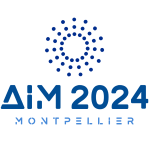Thematics & GTAIM > Digitalization, maritime and island territoriesDigitalization, maritime and island territories Island territories are characterized by spatial, historical, cultural and linguistic discontinuities. These territories, which bring together strategic issues in contexts of limited resources, are sometimes strongly linked to large economic players who can sometimes position themselves in a dominant or monopolistic situation (Lissillour et al., 2021). To develop their economies, these territories have historically always been linked by maritime and airport exchanges which bring together ecosystems of complex actors, integrating flows that are today increasingly digitalized via socio-technical systems that are more or less coupled and in partly self-organized (Watson et al., 2021). Due to their economic, social and societal proximity to the maritime world, the issues and actions of island territories are strongly linked to maritime governance, which makes maritime and island ecosystems highly interdependent. In addition, certain “outermost” territories require taking into account multiple characteristics specific to constrained island environments. We invite researchers from the AIM community and more broadly all researchers in management science, including inter-disciplinary work, to respond to these major economic, social and societal issues (Majchrzak et al., 2016): opportunities and risks associated with the digitalization of maritime transport and ports, sustainability of maritime and island territories, climate and natural risks (volcanological, tsunamis), corruption and trafficking of illicit products, growth of entrepreneurship. The digitalization of maritime and island territories thus brings new opportunities but also new risks (Dominguez-Péry et al., 2021). Information Technologies (ICT) are increasingly present to automate various economic and social exchanges: maritime transport, piloting and management of maritime, port and/or airport supply chains as well as the economic and social life of island territories. . The data exchanged, ever more numerous on these island territories, within ships, between ships and ports, within airports and/or to facilitate intermodal logistics and exchanges between economic actors and citizens, makes it possible to consider new methods of analysis with big data, blockchain and artificial intelligence to make decisions geared towards better economic intelligence, greater competitiveness and sustainability, as well as greater resilience. With this digitalization, players must adapt their decision-making, information and management models. There are also new ways of managing organizations and work that need to be re-invented, with permanent adaptations to be put in place in the training of maritime stakeholders and island territories. Indicative themes
References
AIM Track Managers Carine Dominguez-Péry, Professor of Management Sciences, University of Grenoble Alpes, carine.dominguez-pery@univ-grenoble-alpes.fr Christophe Elie-Dit-Cosaque, Professor of Management Sciences, University of Martinique, christophe.elie-dit-cosaque@univ-antilles.fr Chantal Fuhrer, Professor of Management Sciences, University of Réunion, chantal.fuhrer@univ-reunion.fr Raphaël Lissilour, HDR Lecturer, IPAG, r.lissillour@ipag.fr Gwenaëlle Oruezabala, HDR Lecturer in Management Sciences, University of Nantes, Gwenael.Oruezabala@univ-nantes.fr
|


